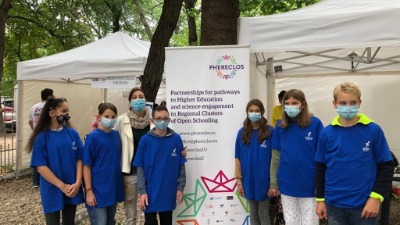Four organizations from Romania and Spain work together to create a network of professional support in order to increase the professional skills of scientists, researchers, teachers, school managers and trainers for organising innovative “Open Schooling” activities, capitalising the experience within the partnership with the Children’s University Association from Romania and finding innovative ways of carrying out future joint activities, even after the lifetime of the TEMP. Through development of training and
/ or transversal competencies through training and professional growth programs For creating educational programs about healthy and sustainable lifestyles, capitalizing the good Waldorf methodology related to openness to nature and science.
The position of each partner involved in the project brings to the TEMP project a multidisciplinary approach through the active involvement of each actor (students, teachers, parents society), through the diversity of activities aimed not only at new learning methods related to teachers in Science but also the implementation them in the teaching-learning process applied to the class through practical activities. In this way, students directly benefit from the cognitive development obtained in the practical
activities, which aim at personal development, carried out within the workplan. The university environment as a platform for TEMP activities develops a new learning path for the student's school career, thus guiding a learning direction to increase performance and competitiveness, to open new horizons for a better understanding of the integration of certain professions in the social context. The interaction that the student has with the university environment on a natural background, helps the emotional development and the integration of emotions in his personal development.
Favoring the introduction of new learning methods in the Romanian school, by opening the horizons, made in partnership with the University of Agronomic Sciences and Veterinary Medicine, as an exchange of good practices, through activities and projects that bring students closer to nature and determine a better understanding (visually, emotionally, etc.) of the social context. The projects developed in partnership with the Children's University of Bucharest have a unique character because they managed to change the role play between students and teachers, the former being presented as the real project leaders, receiving tasks and compiling a work plan and action made with their own resources.
Never start with "Can't", but start with "Let's see".

